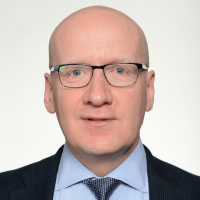Conor Ogle is vice president, business consulting at Sapient Global Markets.
Which hot topics/hype should be retired at the end of 2016?

Conor Ogle,
Sapient Global Markets
I think as an industry we’ve all seen the hype around ‘FinTech’ as some sort of disruptive force as well as savior. It needs to be reined in because we have got to a point where it is becoming nonsensical and actually confusing. Do we mean all tech related to financial services? It can’t solely mean start-ups because there is innovation happening at larger firms and it can’t mean new technology because much of what it happening as these new firms are not using emergent technology to achieve some impressive results. They are using tried and tested technology, but are innovating through the business model or user experience. So we have to move past the ‘tech’ part and focus on the ‘fin’ and with the aforementioned regulatory changes that will fundamentally alter the products firms want and can afford to offer. Tech can be an enabler but unless it’s powering a re-imagined value chain, it cannot be a panacea for the underlying issues facing financial services firms.
What do you see as the next major watershed for the industry in 2017?
I see 2017 as a ‘year of anticipation.’ We’re seeing the opening chapter of a truly generational shift in the very nature of financial services; from the obvious heavy lifting in MiFID II preparations to the fundamental changes that PSD2 introduces. By lowering the barriers to entry for new players, PSD2 removes revenue ‘sacred cows’ making the position of certain service providers extremely precarious, and it defends the right of client choice and information security in a transparent and easy-to-understand world as a base principal, not a service. Likewise, MiFID II ensures the client is at the heart of the transaction and given evidence that the bank is doing its utmost to deliver value.
Staying in business will become harder as the value chain as we know it evolves. However, it is unlikely that any major player will cease to exist. Indeed, such drastic change is likely to encourage the incumbents to change their approach to become sustainably profitable in this new world. Many have assumed they’re not reacting to what it going on around them but it would be unwise to conflate a lack of column inches and hype for inaction on their part. Those firms, whether new or familiar, that have the greatest control of their capital, customer touch points and agility will triumph. Those hanging stubbornly on to existing strategies and monolithic infrastructures, or that view regulation as a mandatory box ticking exercise, rather than a basis and a catalyst for re-thinking how they operate and adapt their value chains, will continue to fade. Incumbents and challengers are presented with the same challenge: can they re-imagine a way of bringing value to their customers, while generating value for their firm? 2017 will be the year when the answers to those fundamental questions start to appear.




